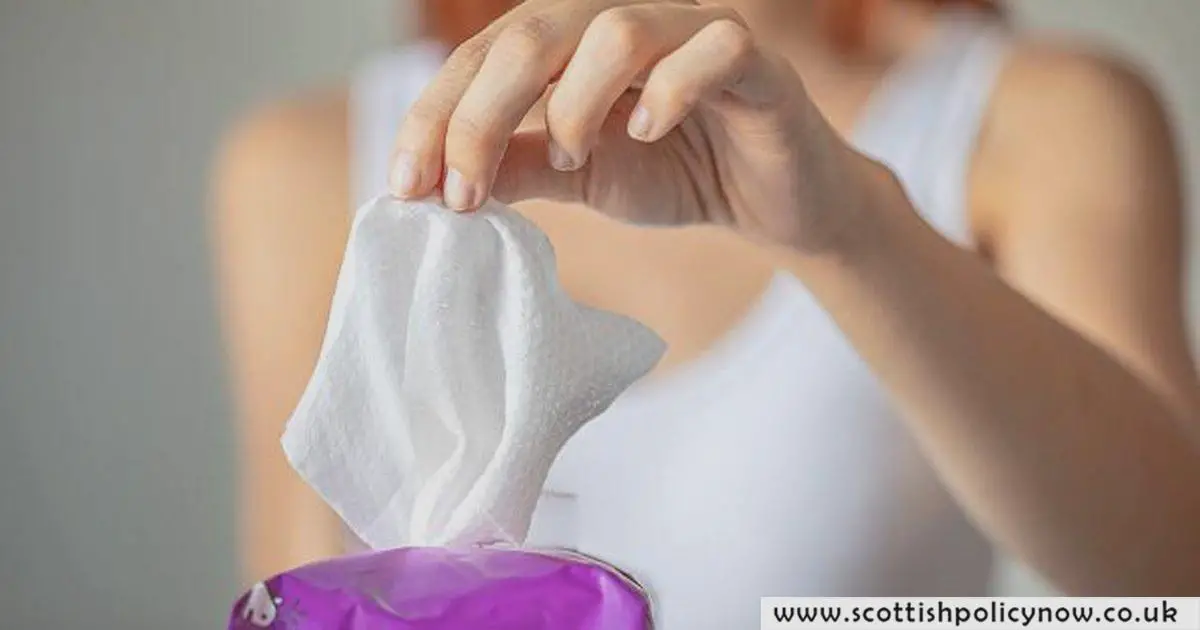Plastic wet wipes are on their way out in Scotland as part of a new initiative to prevent them from clogging sewers and polluting waterways. The proposed nationwide ban aims to curb the environmental damage caused by these products.
Parents concerned about managing without wet wipes need not worry—there’s a wide range of plastic-free options already available, with major retailers like Boots, Tesco, and Aldi leading the way in phasing out plastic-based wet wipes.
Scottish Water has long complained about the strain caused by flushing plastic wet wipes, which often end up blocking sewers and causing environmental harm. These wipes eventually break down into microplastics, which can wreak havoc on ecosystems and contaminate waterways. Additionally, discarded wet wipes are increasingly seen littering Scotland’s beaches.

The new legislation, expected to be introduced across all four UK nations this year, will take effect 18 months later, around mid-2026. This transition period is designed to give businesses time to adjust, according to the Scottish Government.
A recent consultation found that 95 percent of Scots supported a ban on plastic-containing wet wipes. The move is also backed by organizations such as the Royal Zoological Society of Scotland, the Marine Conservation Society, and Zero Waste Scotland.
The need for the ban is evident as Scotland’s sewer system experiences approximately 100 ‘chokes’ each day, with wet wipes being a common cause. These blockages often lead to sewage spills that can contaminate the environment.
Simon Parsons, Director of Environment, Planning, and Assurance for Scottish Water, said: “We are delighted to see progress on bringing forward new laws to prevent the sale and use of wet wipes made with plastic. This will have a significant positive impact on our country’s sewers and water environments, so people can enjoy them without encountering sewage-related debris.”
Between 2015 and 2020, an average of 20 wet wipes were found per 100 meters of beach surveyed across the UK, according to Defra Beach Litter Monitoring Data. Flushing plastic wet wipes down the toilet has been a major source of sewer blockages.
However, alternatives are becoming more widely available. Stores now offer plastic-free, biodegradable, and even flushable wet wipes, providing parents and others with eco-friendly options. Boots, Aldi, and Tesco have already completely removed plastic-based wet wipes from their shelves.
Steve Ager, Chief Customer and Commercial Officer at Boots, said: “We are pleased to see the Government now taking action. A ban on all wet wipes containing plastic will have a much bigger impact than retailers taking action alone. We all have a collective responsibility to protect the environment and support a healthy planet.”
Scotland’s Circular Economy Minister Lorna Slater said: “I am delighted to confirm that the Scottish Government will ban wet wipes containing plastic. These items are a problematic source of marine litter and are a threat to the health of our environment and wildlife.”
“This ban delivers on an important commitment made in our Marine Litter Strategy and builds on previous actions to ban unnecessary single-use plastic items such as plastic-stemmed cotton buds and plastic straws and cutlery,” she added.







